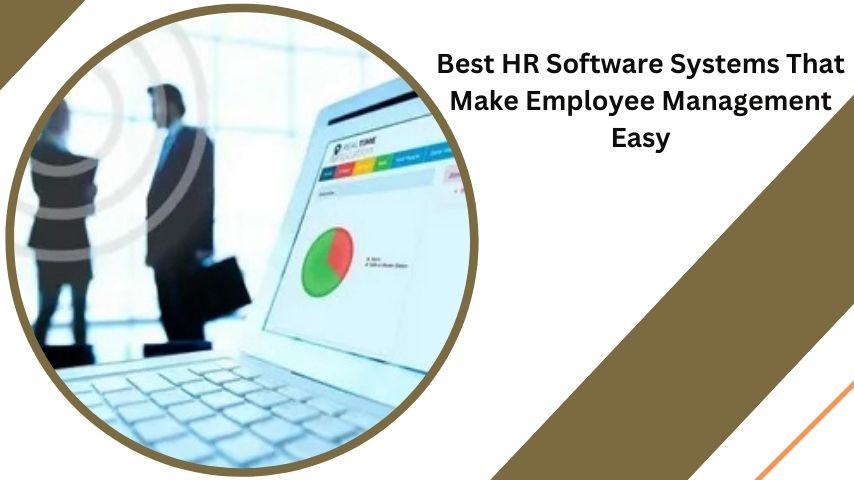
An HR software system can simplify payroll, track employee attendance, manage benefits, and help with recruitment. However, not all HR software is the same, and picking the wrong one can cause more problems than solutions.
Before making a purchase, here are the most important things to consider when selecting an HR software system for your business.
NOTE: If your HR processes are still handled manually, it’s time to make a change. HR software systems can simplify your workflow, improve accuracy, and save time. Start using the right system today and create a smarter way to manage HR tasks!
Understand the Challenges in HR Workflow
Before improving HR processes, it is important to know the common problems businesses face:
- Too much paperwork – Keeping physical records of employee details, payroll, and leave requests is slow and difficult to manage.
- Payroll mistakes – Manually calculating salaries, taxes, and deductions increases the chance of errors.
- Delays in recruitment – Hiring new employees takes time when resumes are reviewed manually, and interview schedules are handled through email.
- Lack of proper attendance tracking – Without an automated system, tracking employee work hours, overtime, and absences can be a challenge.
- Compliance risks – Keeping up with labor laws, tax updates, and company policies manually is difficult.
With these issues in mind, businesses need a structured approach to improve HR workflow.
Automate Payroll and Attendance Tracking
One of the biggest responsibilities of HR teams is managing employee payments and work hours. Manually processing payroll increases the risk of salary miscalculations, tax errors, and payment delays. HR software systems solve this by:
- Automatically calculating salaries – The system considers work hours, overtime, and deductions to generate accurate payroll.
- Processing direct deposits – Employees receive salaries on time without manual payment processing.
- Tracking attendance in real time – The system records clock-in and clock-out times, making it easy to monitor employee working hours.
- Managing leave requests – Employees can apply for leave through the system, and HR can approve or decline requests instantly.
By automating payroll and attendance tracking, HR teams can reduce administrative work and avoid payroll errors.
Make Hiring and Onboarding Faster
Recruiting and onboarding new employees can be time-consuming if done manually. HR software systems simplify the hiring process by:
- Posting job openings – The system allows HR teams to publish job listings on multiple platforms at once.
- Filtering resumes – AI-powered screening tools sort applications based on qualifications and experience.
- Scheduling interviews – Automated scheduling reduces back-and-forth communication between candidates and hiring managers.
- Creating digital onboarding programs – New hires can complete paperwork, training, and orientation through the system.
These features speed up recruitment and onboarding, helping businesses bring in new talent quickly.
Improve Employee Performance Management
Tracking employee performance is important for both individual growth and company success. HR software systems provide tools that help HR teams and managers:
- Set clear employee goals – The system allows managers to define performance targets and monitor progress.
- Provide feedback quickly – Employees receive real-time feedback, helping them improve their skills.
- Conduct performance reviews – The system generates reports based on employee achievements, attendance, and feedback.
- Reward top performers – HR teams can use the system to track employee contributions and recognize achievements.
With automated performance management, employees stay motivated and understand their career growth path.
Ensure Compliance with Labor Laws
Following labor laws is important for every business. Failing to comply with tax regulations, employee rights, or workplace safety laws can lead to legal issues. HR software systems help businesses stay compliant by:
- Updating tax rules automatically – The system adjusts payroll calculations based on tax law changes.
- Maintaining digital employee records – Securely storing contracts, work permits, and other important documents.
- Tracking employee benefits – Ensuring employees receive benefits such as health insurance, retirement plans, and paid leave.
- Generating audit reports – Providing reports that help HR teams stay prepared for legal inspections.
With an automated system, HR teams can focus on policies that protect employees and the business.
Conclusion
A well-organized HR workflow allows businesses to operate smoothly and keep employees happy. HR software systems help automate payroll, recruitment, attendance tracking, and compliance, reducing manual work and increasing efficiency. By adopting the right system, HR teams can focus on what truly matters—supporting employees and driving business success. For more insightful articles related to this topic, feel free to visit ideaepic.





Leave a Reply